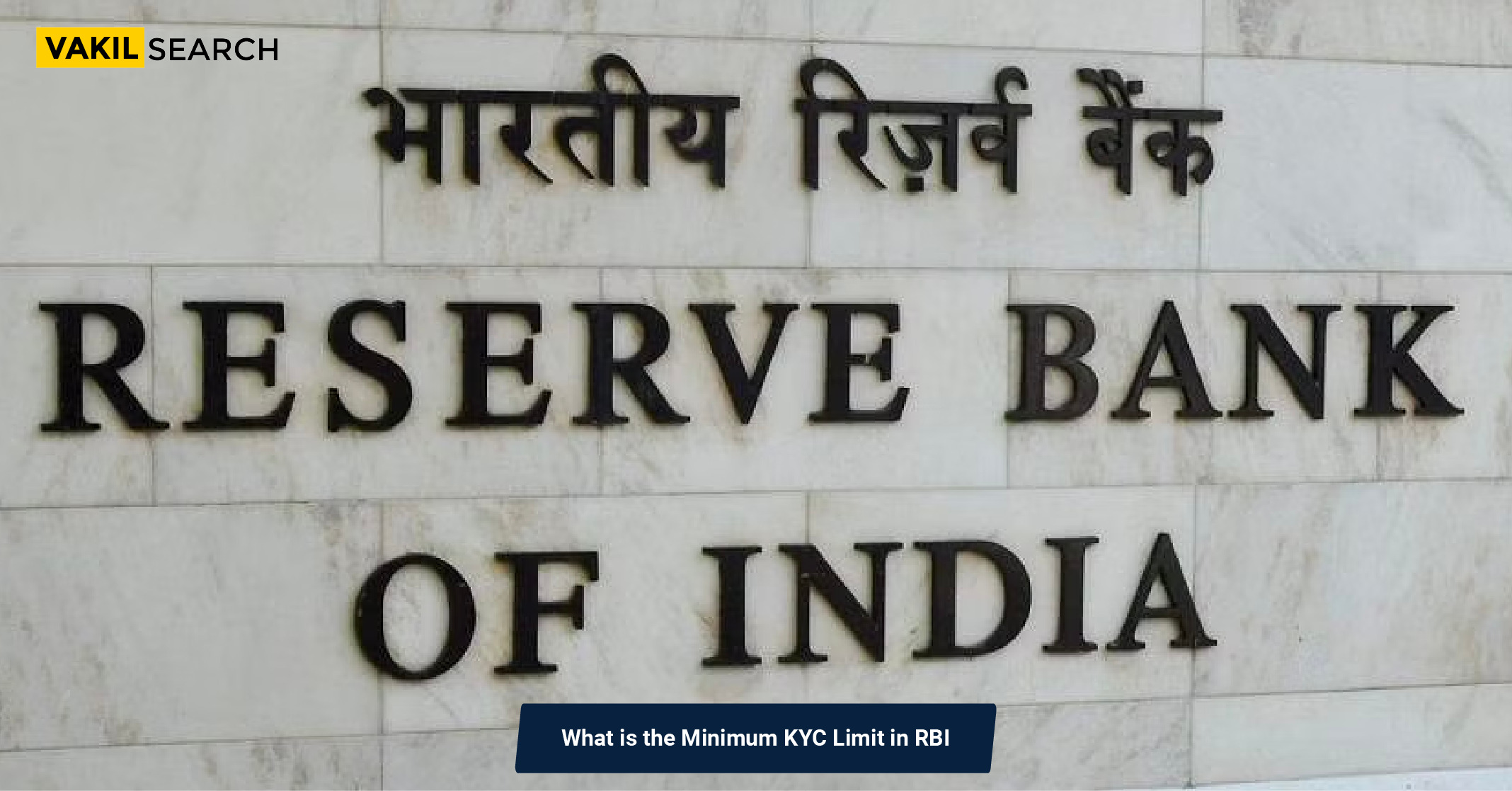Learn about the Reserve Bank of India's Minimum KYC Limit, streamlining lower-value transactions. Explore simplified KYC processes and recent regulatory shifts, ensuring compliance.
Introduction
The Reserve Bank of India (RBI) has set guidelines and regulations to ensure that financial institutions conduct customer due diligence. One critical aspect of this due diligence is the Minimum KYC Limit. This limit serves as a threshold for certain transactions, defining the extent to which formal Know Your Customer (KYC) processes need to be followed. In this article, we will delve into what the Minimum KYC Limit in RBI refers to, its purpose, significance, transactions falling under this limit, and any recent regulatory updates.
Understanding the Minimum KYC Limit in RBI
The Minimum KYC Limit in RBI is the monetary threshold set by the RBI, below which financial institutions can conduct simplified KYC procedures for their customers. Transactions falling below this limit may require lesser documentation and verification processes compared to higher-value transactions.
The purpose of establishing a Minimum KYC Limit is to streamline the KYC process for low-value transactions. It strikes a balance between ensuring compliance with regulatory norms and promoting financial inclusion, especially for individuals with limited financial means.
Significance
The Minimum KYC Limit significantly reduces the administrative burden on financial institutions for smaller transactions. By applying simplified KYC measures, it facilitates a faster onboarding process for customers and encourages more transactions, ultimately promoting financial growth and inclusion.
Transactions Falling Under the Minimum KYC Limit
Transactions such as small cash deposits, mobile recharges, bill payments, and basic digital transactions often fall under the purview of the Minimum KYC Limit. These are routine, low-value transactions that individuals conduct on a day-to-day basis.
Examples of Transactions:
- Recharge of prepaid mobile numbers for a small amount.
- Bill payments for utilities like electricity, water, or gas within a certain monetary limit.
- Small cash deposits or withdrawals at ATMs or bank branches.
- Purchases of goods or services using digital wallets up to a specified amount.
RBI’s Circular on Digital Payments
The RBI, in its circular dated December 6, 2019, revised the norms for Prepaid Payment Instruments (PPIs), including digital wallets. It stipulated that for PPIs without complete KYC, the usage would be limited to transactions of up to ₹ 10,000 per month.
Enhanced Stringency in KYC Norms
In a bid to strengthen the KYC process and curb fraudulent activities, the RBI has periodically tightened the norms around KYC requirements, impacting the Minimum KYC Limit. Financial institutions are encouraged to ensure compliance with these updated guidelines.
Simplified KYC Procedures under Minimum KYC Limit
For transactions falling under the Minimum KYC Limit, financial institutions adopt streamlined KYC procedures. These procedures typically involve minimal documentation, such as providing a mobile number, name, and sometimes an identification number. Biometric authentication may not be necessary for these transactions.
Purpose of Simplified KYC
The purpose of simplified KYC procedures is to expedite transactions while ensuring basic verification of customers. The streamlined process facilitates a seamless experience for users engaging in routine low-value transactions, encouraging financial activities.
Facilitating Financial Inclusion
Simplified KYC under the Minimum KYC Limit plays a vital role in promoting financial inclusion, especially for individuals who may have limited access to formal identification documents. By reducing the barriers to entry, it allows a broader segment of the population to participate in the formal financial system.
Evolving Regulatory Landscape and Future Prospects
The RBI has consistently evolved its KYC norms to enhance security and compliance. Recent changes have incorporated advancements in technology, including biometric verification and the integration of Aadhaar for a more robust and efficient KYC process.
Future Prospects and Trends:
With the advent of technology and the push towards a digital economy, the future of KYC is likely to witness further advancements. Biometric authentication, blockchain-based KYC, and artificial intelligence for fraud detection are expected to revolutionise the KYC landscape, making it more secure, efficient, and seamless for both institutions and customers.
Conclusion
The Minimum KYC Limit in RBI serves as a crucial tool to facilitate streamlined transactions for lower amounts. By setting a threshold below which simpler KYC procedures apply, the RBI balances compliance and financial inclusion. Small-value transactions like mobile recharges, bill payments, and basic digital transactions are notably impacted by this limit. Staying updated with recent regulatory changes is paramount for financial institutions and customers alike to ensure smooth transactions within the specified limits.
Collaborating with Vakilsearch can be instrumental in navigating these regulatory nuances. Vakilsearch, with our legal expertise and understanding of regulatory landscapes, can provide guidance to financial institutions, ensuring they stay compliant with the evolving RBI guidelines concerning the Minimum KYC Limit in RBI. This collaboration empowers financial entities to streamline their compliance processes effectively, thus bolstering customer satisfaction and operational efficiency.
Read more,

